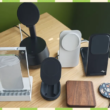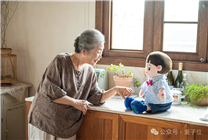Revolutionizing Elderly Care: The Role of AI Dolls in South Korea
Summary
- South Korea deploys AI dolls to assist elderly individuals living alone, addressing loneliness and monitoring health.
- These AI companions not only provide emotional support but also alert caregivers in emergencies.
- As the aging population rises, such innovations may reshape elder care globally.
Introduction
In an effort to combat the rising issues of loneliness and health concerns among the elderly, South Korea has introduced an innovative solution: AI dolls. Developed by Hyodol, these smart companions are being distributed on a large scale to thousands of elderly residents living independently, providing essential emotional and practical support.
The Need for Companionship
As South Korea transitions into a "super-aging" society, many seniors face significant loneliness, often leading to depression and chronic health issues. With a high suicide rate among older adults, the demand for companionship has never been greater. The introduction of AI dolls like Hyodol serves as a timely intervention.
These dolls act as constant companions, alleviating feelings of isolation while simultaneously monitoring health parameters. This dual function makes them particularly invaluable for older adults who often struggle to communicate their needs and feelings.
Features of the AI Doll
The Hyodol doll is equipped with a conversation system based on advanced AI technologies. It engages elderly users in cheerful dialogues, ensuring they feel connected and heard. Additionally, it has built-in reminders for meals and medication, further aiding in the management of their health.
Real-time Monitoring
Hyodol is innovative in its ability to monitor the well-being of seniors in real time. If the doll’s motion sensors detect no activity for 24 hours, it automatically alerts designated caregivers. Furthermore, it records responses to daily prompts like “How are you feeling today?” enabling caregivers to gain insights into the seniors’ emotional states through data analysis.
Bridging Communication Gaps
Caregivers often find it difficult to establish open communication with elderly patients. However, the AI doll has proven effective in breaking down these barriers. For instance, caregivers report that seniors frequently disclose feelings and thoughts to their dolls that they might not share with family members—potentially urgent information, as in the case of an elderly man who expressed suicidal thoughts to Hyodol, prompting immediate intervention.
Cost-Effective Elder Care
The financial strain of providing adequate elder care is a growing concern in South Korea, with a projected nursing staff shortage of 1.55 million by 2032. The Hyodol project offers a cost-effective solution, significantly reducing caregiving expenses while still ensuring the well-being of seniors. Government initiatives have supported the deployment of these dolls, marking a significant investment in the future of elder care.
Global Landscape of Elder Care Robotics
The introduction of Hyodol isn’t isolated to South Korea; other countries are also exploring robotic companions for the elderly. In Japan, pet-like robots such as Seal Paro provide emotional comfort, while in New York, ElliQ acts as an interactive partner for seniors. Singapore’s Dexie encourages physical activity and engagement through games and songs.
Market Growth and Future Implications
Research indicates a growing market for elderly care robots, with projections estimating it could reach $7.7 billion by 2030. This increase reflects the urgent need for effective solutions to support a rapidly aging global population. As nursing robots become more prevalent, they may shift the entire landscape of elder care.
Ethical Considerations
While AI dolls provide numerous benefits, they also raise important ethical questions about privacy and dependency. Many seniors worry about their personal data being monitored, and there are concerns about the psychological impacts of such relationships. Some elderly individuals express a desire for their AI companions to be by their side even in death, highlighting a potential over-reliance.
Moreover, cases of seniors with dementia misunderstanding or misinterpreting the dolls’ interactions have emerged, leading to dangerous situations. As such, developers are continually refining the functionalities of these robots to prioritize user safety.
Conclusion
AI dolls like Hyodol represent a pioneering approach to tackling loneliness and health monitoring among the elderly. By combining technology with compassion, they serve a vital role in modern elder care. However, as these innovations advance, it’s essential to navigate the challenges they introduce thoughtfully, ensuring that they enhance, rather than complicate, the lives of those they aim to serve. The journey towards truly safe and effective companionship through technology remains ongoing.









